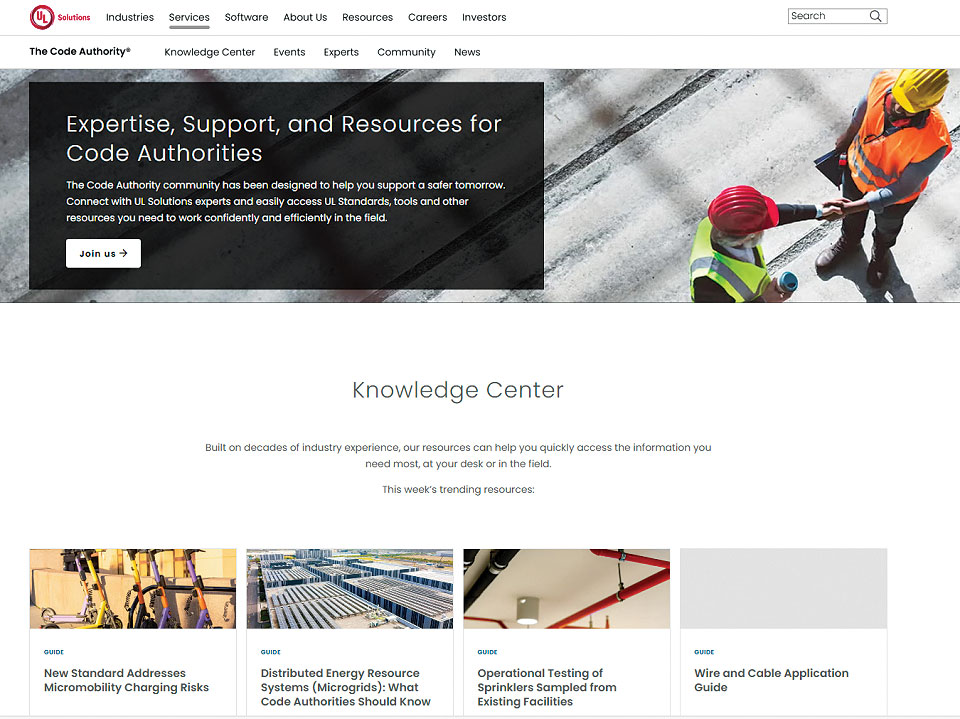Let’s take a few moments to reflect back at the past year before we look forward to 2005. The year 2004 has been a successful and exciting period on the international, national, local, and, more specifically, the IAEI scene.
While the world watched the many incidents of strife going on between and within countries, while the U.S. concentrated on the election process, and while the process of adopting a new edition of the NEC captivated the electrical industry, IAEI was also active in 2004. The IAEI scene is what I address my comments to in this editorial.
You may say, Yea, the year has been exciting but how can you say IAEI has been successful when IAEI has continued to see our membership decreasing? Let’s take a look back at some of the accomplishments this past year.
Financial Success
IAEI ended 2003 with a net worth of $1,784,134.76 but showed a loss of $189,460.18 for the year. IAEI had $41,996.27 in its cash operating account. Even though the final figures are not in for 2004, as this is being written, IAEI’s net worth stands at $2,485,833.37 as of October 31, 2004. The net income is $538,888.80 with a cash operating account of $356,879.28 through October 2004. All indications are that the end-of-the-year financial situation will continue to show this successful trend.
Publications
IAEI News continues to be the bright and shining star of IAEI. 2004 was successful for the News in that revenue from advertising more than paid for printing and shipping/mailing.
The Analysis of Changes, 2005 NEC was written, produced, and printed between the adoption of the 2005 NEC by NFPA in May 2004 and the first section meeting in September 2004. Much work was done and the contribution of our code-making panel members helped tremendously with the authoring of this Analysis. It has been greatly praised, and it is already in the second printing, which is a record for the earliest reprint.
The updating and upgrading of iaei.org has resulted in many positive comments from members and nonmembers. The number of “hits” to the website is increasing. We count that as a success.
Education
IAEI training materials, books, and PowerPoint programs have been successfully updated—the Analysis and Soares Grounding and Bonding are just two. Many seminars and continuing education programs have been conducted, with comments coming back to the International Office indicating great success. Requests for on-site programs are increasing, which is another indication of success.
Customer Service/Administration
Our customer service staff has continued to respond to member and customer requests in a timely fashion. Members can now renew their membership online, and transactions conducted with plastic (credit card) now receive an email notification as soon as the charge is processed. This function only works when we have your email address. New members can also sign-up online.
Secretaries and membership chairmen of sections, chapters, and divisions get an updated membership list online. The list is updated monthly. This allows them access to up-to-date membership status so that more timely and effective communication with members can take place at the local level.
The Wisconsin Chapter, the Texas Chapter, and the East Central Wisconsin Association of Electrical Inspectors generously donated enough funds for the IAEI to purchase an additional server. Thanks to these groups for helping IAEI to stay ahead of obsolescence with our computer equipment.
One of our initiatives that has not been the success that we would have liked is the Certified Electrical Inspector program. IAEI and NFPA initially joined together to establish a premier certification program that was a step beyond the typical entry-level certification programs in existence today. NFPA decided to remove themselves as administrators of the program and IAEI has decided to continue on its own.
IAEI has two certification programs—the “entry level” certifying applicants as Electrical Inspector: One- and Two-Family Dwelling (2A); Electrical Inspector: Electrical General (2B); and Plan Review (2C). That program has been upgraded to require recertification and continuing education on a three-year cycle. If you were a holder of an IAEI certificate in any of these three certifications, you should have received a letter explaining the recertification process. You should have, by now, returned the yellow card indicting your desire to remain in that program. No money was required until recertification time in three years.
The other program is the Certified Electrical Inspector program (CEI). Certification is as CEI–Residential and CEI–Master. This program is a step above entry level in that not only are experience in the electrical field and passing an exam required, but the applicant must complete a practicum exercise whereby the ability to apply the code rules in the field must be demonstrated. With this practicum exercise being a part of the process, it should be evident that this certification is addressing the needs of existing electrical inspectors for a more advanced certification.
This CEI program has been slow to get started, as we have just now been able to advise applicants that have taken the exam of their pass or fail status. There is a transfer option into the program. For more information you may check out iaei.org.
There have been other successes that have not been mentioned. Perhaps you can name a few yourselves. So what’s up for 2005? More financial successes, more books and training materials, more seminars, more customer services advances, and more MEMBERS.










Find Us on Socials